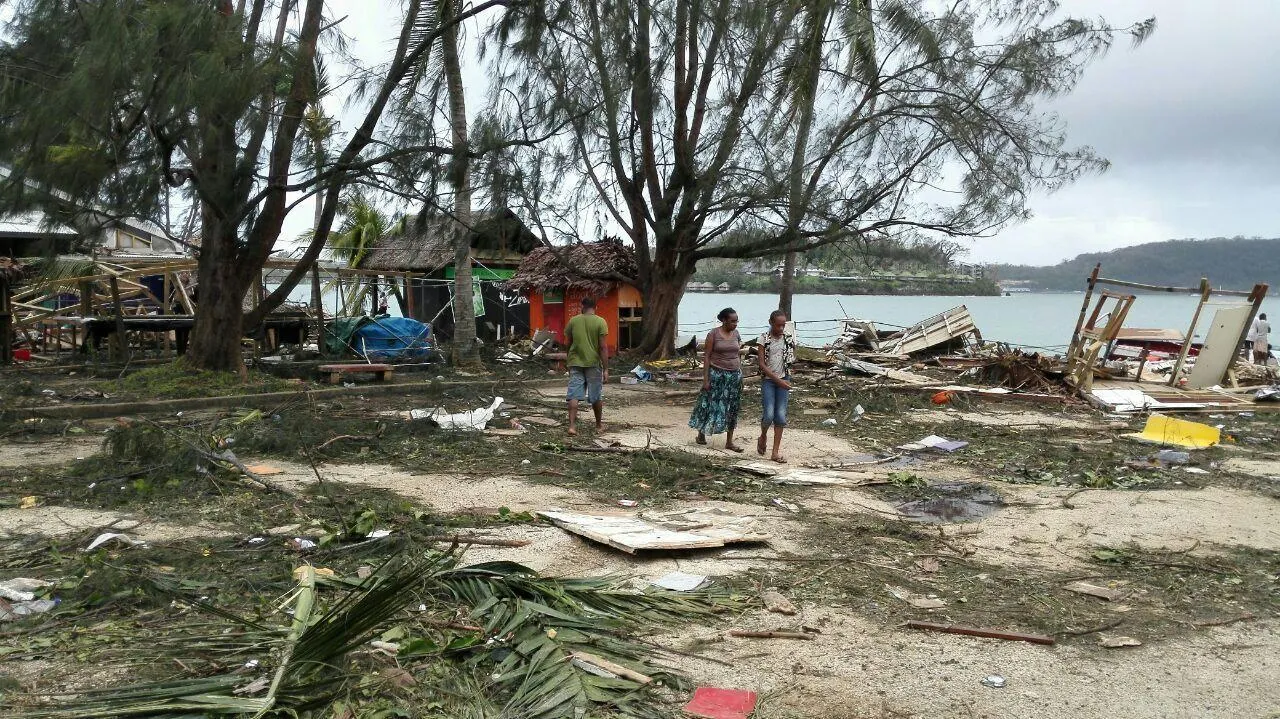Days after twin cyclones tore through the country, the situation for an estimated 58,000 children in Vanuatu remains extremely precarious.
Children in the worst affected provinces of Tafea and Shefa in particular, need urgent help to recover.
Many have lost their homes, schools, neighbourhoods and all things familiar in their lives.
“With power still out in many places, and boats and planes grounded or damaged by the cyclones, we still don’t have enough information on the impact of children in the outer islands of Tafea,” says UNICEF Pacific Representative Jonathan Veitch.
“We know that schools and health centres have been damaged throughout the country, and UNICEF Pacific, in partnership with the Government, has begun to support the children and families most affected.”
On 05 March, UNICEF and the Vanuatu Red Cross delivered the first batch of humanitarian supplies to 450 people in the evacuation centre in Wan Smolbag in Shefa Province.
Over the coming days, 1,000 families will receive these emergency supplies, which include dignity kits, buckets and tarpaulins. The UNICEF warehouse in Port Vila was fully stocked with emergency supplies in preparation for cyclone season, and more are already on their way from Fiji.
UNICEF has 17 staff already on the ground in Vanuatu, supporting the Government with needs assessments and immediate response. Based on initial assessment with partners, immediate needs include water and sanitation, health services, non-food items and emergency shelter.
The government has confirmed that 100 percent of the country’s population of 300,000 have experienced the strong winds, with 200,000 of them in need of immediate support.
Now that the second cyclone has passed through the country, the authorities are conducting rapid assessments to determine the exact needs. Based on previous experience in Vanuatu, relief items needed will include water, sanitation and hygiene (WASH) kits, primary healthcare including first aid, and female hygiene kits.
In the short term water systems will need to be checked and restored and schools reopened wherever possible. Psychosocial support and other child protection services need to be established as quickly as possible to allow children to return to a sense of normalcy.
SOURCE: UNICEF PACIFIC/PACNEWS














